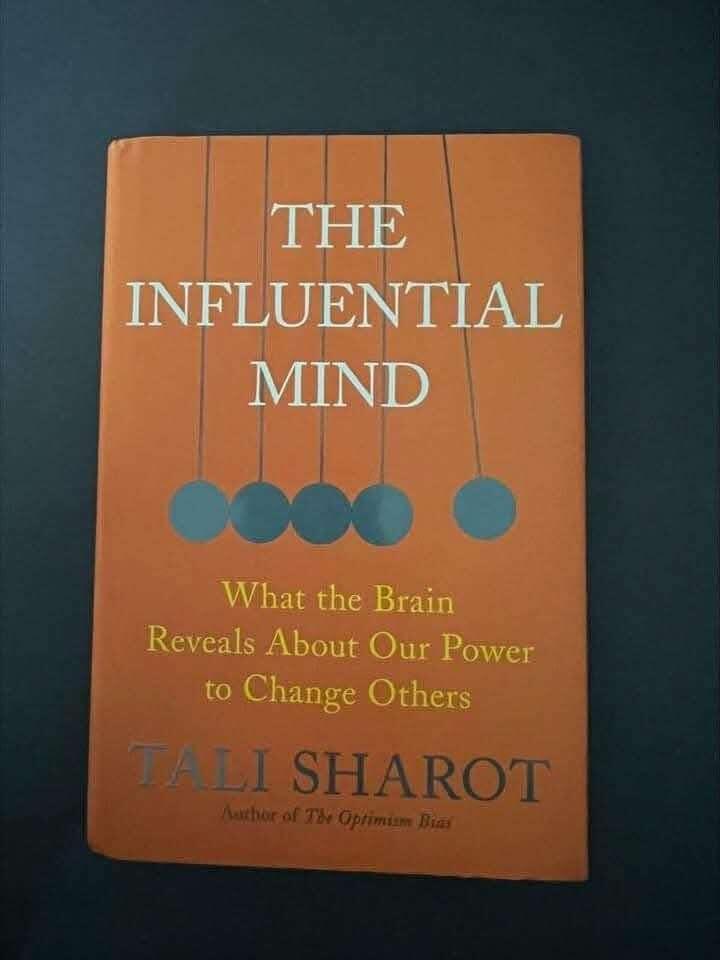venus8418 on Nostr: Boosting this so I don't forget about it. ...
Boosting this so I don't forget about it.
quoting note16cx…hwfz
🌊 SURF 'N TURF 🏝️
-THE ISLAND LIFE-
"True influence comes from aligning your message with the emotions, beliefs, and desires of others."
The Influential Mind: What the Brain Reveals About Our Power to Change Others by Tali Sharot explores the science of influence, examining how human emotions, beliefs, and biases shape our ability to persuade. By understanding the brain's mechanisms, we can improve how we connect with and inspire others.
Here are lessons from the book:
1. Emotion Drives Influence
Logical arguments alone rarely persuade. Emotion is a powerful driver of influence, so connecting emotionally with your audience is key to making an impact.
2. People Resist Fear
Fear-based tactics often backfire. Instead of scaring people into action, focus on inspiring hope and offering solutions to encourage positive behavior.
3. Beliefs Are Sticky
Changing someone’s beliefs is difficult because they are deeply tied to identity. Present new information in ways that complement, rather than challenge, existing beliefs.
4. The Power of Rewards
Positive reinforcement is more effective than punishment. Rewards create a sense of achievement and encourage the adoption of new behaviors.
5. Confidence Is Contagious
People are drawn to confidence. Expressing certainty in your ideas increases your credibility and makes others more likely to follow your lead.
6. Stories Over Stats
The brain is wired for storytelling. Personal narratives are more memorable and persuasive than presenting facts and data alone.
7. Curiosity Sparks Engagement
Asking thought-provoking questions and presenting intriguing scenarios captivates attention and encourages active participation in discussions.
8. Choice Matters
People are more likely to act when they feel they have a choice. Frame decisions to empower others rather than pressuring them to comply.
9. Social Proof Works Wonders
Highlighting what others are doing influences behavior. People are more likely to follow a course of action if they see it as socially acceptable or popular.
10. Adapt to Cognitive Biases
Understanding biases like confirmation bias or optimism bias allows you to tailor your approach, making your message more relatable and persuasive.
These insights can help you become a more effective communicator, capable of influencing others ethically and authentically in various aspects of life.
Credits Goes to the respective
Author ✍️/ Photographer📸
🐇 🕳️
#Bitcoin #Satoshis #Freedom #Apocalypse #Music #Movies #Philosophy #Literature
#dogstr
